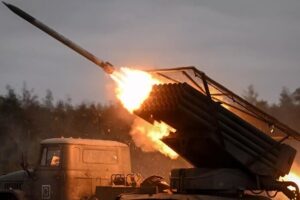Khan, 71, has been languishing in Adiala jail under different cases since August 2023.
Published Date – 08:30 PM, Wed – 3 January 24

File Photo
Lahore: Pakistan’s jailed former prime minister Imran Khan on Wednesday challenged the rejection of his nomination papers for two National Assembly seats in Punjab in the run-up to the February 8 polls in the Lahore High Court’s tribunal.
The returning officer (RO) Lahore on Saturday rejected the nomination papers of the Pakistan Tehreek-e-Insaf (PTI) supremo for two National Assembly seats in Lahore and Mianwali districts of Punjab on “moral grounds and being convicted in the Toshakhana (national treasury gifts) corruption case.”
On Wednesday, Khan, through his counsels, challenged the RO’s decision to reject his nomination papers for NA-122 Lahore and NA-89 Mianwali contending the conviction of the Toshakhana case has no link with his disqualification under Article 62 (1)(f) of the Constitution, therefore, his nomination papers cannot be rejected.
Khan said the RO had also raised objections on his proposers and seconders not belonging to the constituencies he is contesting from. “Both the proposers and seconders belong to NA-122 and NA-89 (and) this objection of the ROs hold no ground,” Khan said and pleaded before the court to set aside the RO’s decision and allow him to contest the February 8 polls from those same two constituencies.
Khan, 71, has been languishing in Adiala jail under different cases since August 2023. Wednesday was the last date to challenge the ROs’ decisions. The election body had rejected nomination papers of 90 per cent of important PTI leaders on what the party described as “flimsy grounds,” mostly in Punjab.
Khan’s party said more than 3,200 candidates’ nomination papers, mostly of PTI, were rejected. Almost all such candidates have challenged the ROs’ decisions in the tribunals of the high court. The PTI has alleged that the ROs, who are bureaucrats, have en mass rejected the nomination papers of the PTI leaders from across the country apparently on the direction of the ‘military establishment’.




